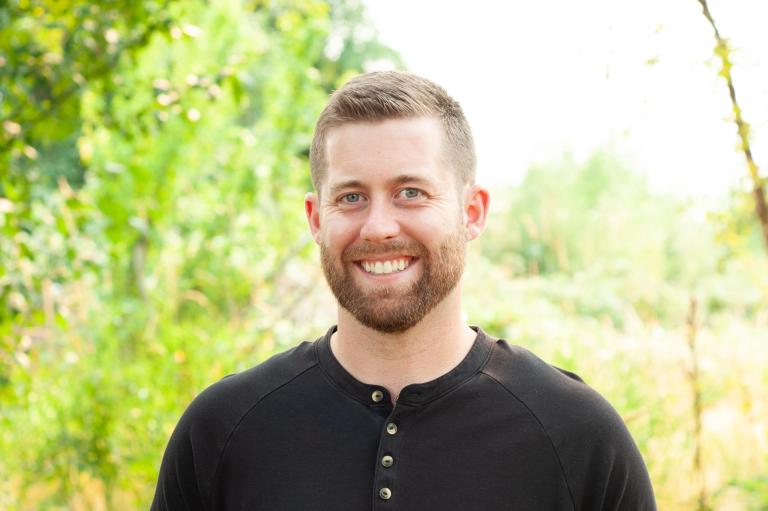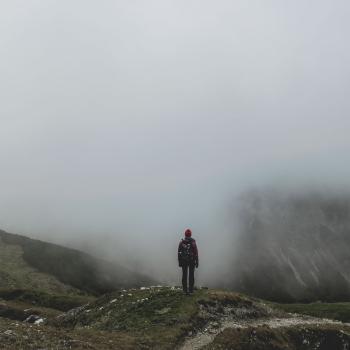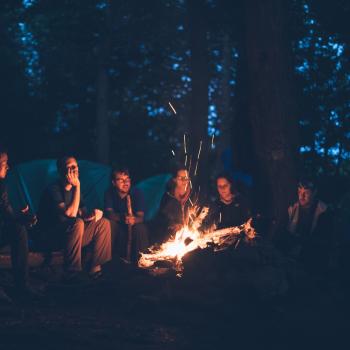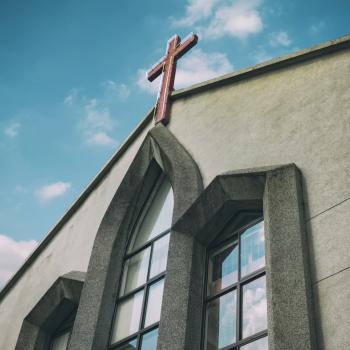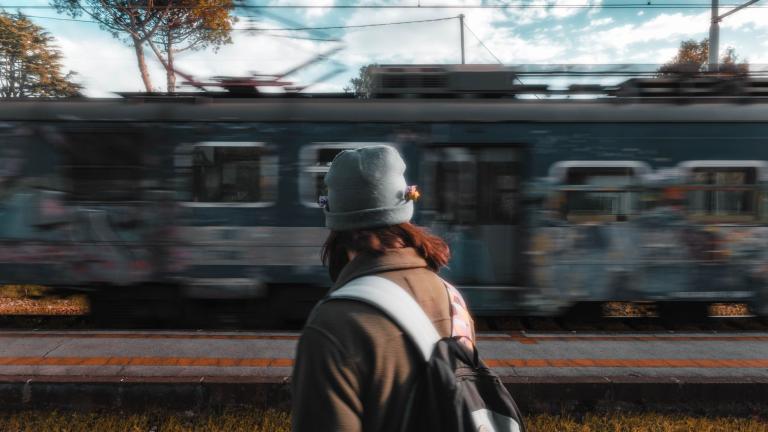
There’s an experience many of us have: running on autopilot, going through the motions, just going along to get along.
In a perfect world, the spaces our spiritualities are supposed to be engaged would help us sink into the depths that lie underneath these experiences. And yet, too often, our faith communities seem to live upon the surfaces themselves, only dipping beneath the waves of life when a catastrophe forces us under.
This leaves us – often – feeling at a loss for options.
We can keep going the way we’re going – and the status quo continues.
We can purchase all the personal development and self-help books and listen to all the spirituality podcasts in the world – and yet still feel isolated and adrift.
Or we can begin to name our longing and open our posture to whatever begins to emerge.
Pierre Teilhard de Chardin refers to this as trusting “in the slow work of God.”
There’s no correct choice – and there are certainly more options than just these – but I have a core belief that guides me as I face these options. It goes something like this:
- I have inherent dignity within me, something nobody can take away. (This is the Divine within me.)
- It is mine to excavate and become intimately acquainted with.
- My relationship with my inherent dignity will help me to be present to my life.
- We can do this deep, heavy soulwork in a soft, light-hearted way.
A Map for This Inner Work
Here is a map of sorts that has helped me in my own internal work.
This framework serves as the basis for most of my workshops over the past ten years and continues to be a core element of my work. There is plenty of nuance in each component, so consider this a 30,000 foot view.
Personal Work
Picture three circles, each stemming from the same point, each one larger than the last.
Our personal work is the most intimate to us and is therefore a great starting place for most. It includes the following (and more):
- Engaging in intentional, attention-filled, and repeatable awareness practices
- Listening for Wisdom Teachers we resonate with and who challenge us
- Understanding how to listen to our body’s knowledge and wisdom
- Connecting with our inherent dignity in soft and gentle ways
- Learning to see ourselves and our stories with soft eyes
- Asking questions of our own life stories
(This personal work is largely what my book Unmasking the Inner Critic: Lessons for Living an Unconstricted Life is dedicated to.)
And yet, it is vital to name: our personal inner work is not isolated work.
No amount of personal development means much if it doesn’t shape the ways in which we show up in our existing communities. Our own personal betterment lacks an embodied healing energy if it begins and ends with what we think of ourselves – our inner work must touch upon the communal and societal aspects of our lives.
Here’s a practice for you:
- Think about your longing and desire within the context of “personal work.” What do you need to feel more whole? What resources might support you? Which friends can you reach out to? What questions are on your heart?
- Then go for a bike ride or some other form of exercise (preferably in nature.) Bring with you your quandary and your curiosities. See what emerges.
Communal Work
Each one of us exists within communities for large chunks of our days.
These communities might include our:
- volunteer organizations,
- faith communities,
- neighborhoods,
- workplaces,
- schools,
- families,
- and so on.
Beginning to shift off autopilot requires that we become
- more and more aware of the depth held within our communities and
- more in-touch with the ways our stories interact and can interact with the stories of our communities.
For example:
Over the past two years, my workplace has seen tremendous turnover.
There is a culture of hierarchy and trepidation, mixed with a healthy dose of fear. People walk on eggshells and often search for new opportunities elsewhere, whether they make the jump or not. It is known – extremely clearly – that there are immense cultural issues within this space.
And yet.
And yet nobody is openly talking about them. There is no communal conversation about the issues being faced and therefore they remain in the shadows.
When I lead people in engaging their communal work, it has everything to do with beginning to recognize these unexamined stories our communities hold and how we relate to them.
Here are some questions that can help you engage your communal work:
- What are the unexamined and/or under-examined stories within one of your communities?
- What are the conversations those with power would rather not have?
- How have you contributed to the current communal culture?
- How can you carry a healing posture in this space?
- Where is the beauty and possibility here?
Societal Work
A wise elder and one of the teachers who has been most influential on my evolving spirituality, Rev. angel Kyodo williams shares this oft-quoted truth:
“Without inner change, there can be no outer change; without collective change, no change matters.”
When we engage in our inner work from the inside out – from our personal work to our communal to our societal – we realize fairly quickly it’s all connected.
How we relate to our own inherent dignity shapes how we relate to others.
Moreover, we experience a greater depth within our personal lives when we are connected with the depths of our communities and the depths of our society. (And I could say that in any mix-and-match order. They are all connected.)
When it comes to our societal work, it is not just a matter of how we are learning to see society’s injustices with soft eyes and engage them in fierce and healing ways; it is a building of capacity to notice more and more how we are an active part of this ecosystem of justice and injustice.
In other words, the societal work invites us into recognizing the ways we are complicit and victims; harmers and harmed; perpetrators and oppressed. It is with this lens that we can deepen our embodied experience of solidarity and step into our spheres of influence as active participants for healing.
To put it simply: our societal work invites us to move deeper than colonizing and charity and into an embodied and everyday solidarity.
Here are some questions for this level of work:
- How have you contributed to injustice in our society? How has this contribution showed up in conversations with your family, your friends, your neighbors, your acquaintances, and your colleagues?
- How have you been harmed by this very same injustice? How has it impacted your view and relationship with your own body, your inherent dignity, your sense of wholeness, and your sense of collectiveness with all living kind?
- Holding both these two together, how can you move with an embodied and healing force in your communities? How might you show up and listen for the harm being caused and then act with fierce love, as Jacqui Lewis calls it, for those experiencing pain?
Want help with engaging this map in your own life?
Check out my free 5-day email series helping people to quit running on autopilot and become more intentional in their lives. Over the course of five days you’ll be invited into your own inner work at the personal, communal, and societal levels. Engage with it here!

